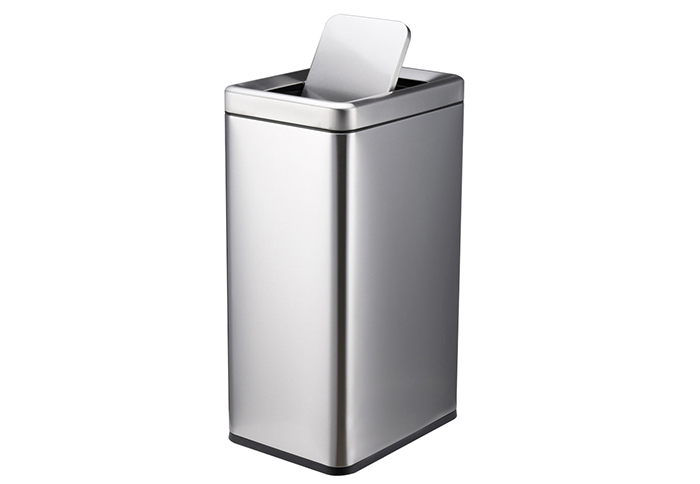Revolutionizing waste management: a comprehensive guide to commercial bins
In the bustling world of commerce, the unassuming Commercial Bin stands as a stalwart guardian of cleanliness and waste management. This extensive guide aims to unravel the complexities of the Commercial Bin, exploring its definition, enumerating the numerous advantages it offers, detailing the various types available, delving into its diverse applications, and concluding with a practical Commercial Bin Buying Guide to empower businesses in making informed decisions for effective waste disposal.
What is a Commercial Bin?
A commercial bin, also known as a commercial waste container, is a large and robust receptacle designed to handle significant volumes of waste generated in commercial and industrial settings. These bins come in various sizes and designs, catering to the specific needs of businesses for efficient waste collection, disposal, and recycling. Learn more about what is a commercial bin?
We are a professional Commercial Bin manufacturer in China, we provide high quality professional Commercial Bin and provide OEM/ODM customization services.

Advantages of Commercial Bin:
Volume Capacity: One of the primary advantages of a commercial bin is its expansive volume capacity, allowing businesses to efficiently manage large quantities of waste without frequent emptying.
Efficient Waste Disposal: Commercial bins are designed for durability and ease of use, providing a practical solution for the disposal of various types of waste generated in commercial spaces.
Waste Segregation: Many commercial bins offer multiple compartments or lids, enabling businesses to segregate different types of waste, fostering recycling and sustainable waste management practices.
Durability: Constructed from sturdy materials such as steel or high-density polyethylene, commercial bins are built to withstand the rigors of daily use, ensuring long-term durability.
Odor Control: Some commercial bins come equipped with features like tight-sealing lids or deodorizing compartments to control unpleasant odors, contributing to a cleaner environment.
Types of Commercial Bin:
Roll-Off Bins: These large, open-top containers are commonly used in construction and renovation projects to handle bulk waste. They are transported on special trucks and can be rolled on and off for easy loading and unloading.
Front-Load Bins: Designed for use with front-load garbage trucks, these bins have lids on the front and are lifted by the truck's mechanical arms for emptying. They are commonly used in commercial and industrial settings.
Skip Bins: Similar to roll-off bins, skip bins are open-topped containers used for the collection of bulky waste. They are suitable for various industries, including construction and manufacturing.
Compactor Bins: Equipped with a compaction mechanism, these bins compress waste, allowing for more efficient use of space and reducing the frequency of collections. They are commonly found in large commercial establishments.
Applications of Commercial Bin:
Construction and Demolition: Roll-off bins and skip bins are frequently utilized in the construction industry for the disposal of construction and demolition waste.
Retail and Commercial Spaces: Front-load bins are commonly used in commercial areas such as shopping centers and retail establishments for the disposal of general waste.
Manufacturing Facilities: Businesses involved in manufacturing often utilize compactor bins to handle the large volumes of waste produced in the production process.
Hospitality Industry: Hotels, restaurants, and other businesses in the hospitality sector use commercial bins for the efficient disposal of waste generated in their daily operations.
Commercial Bin Buying Guide:
Volume Capacity: Assess the volume of waste your business generates to determine the appropriate size of the commercial bin needed.
Type of Waste: Consider the types of waste your business produces. If there's a need for recycling or waste segregation, opt for bins with multiple compartments.
Durability: Choose bins constructed from robust materials like steel or high-density polyethylene to ensure longevity, especially in high-traffic commercial settings.
Ease of Emptying: Evaluate the method of emptying that aligns with your business's logistics. Front-load bins, roll-off bins, and skip bins offer different emptying mechanisms.
Odor Control Features: If managing odors is a concern, look for commercial bins with tight-sealing lids or additional features designed to control unpleasant smells.
Budget: Determine your budget and explore options within that range. Consider the long-term cost-effectiveness and durability of the chosen commercial bin.
Brand Reputation: Research and consider the reputation of the brand, looking for user reviews and feedback to ensure the bin meets your expectations.
Conclusion:
In conclusion, the commercial bin emerges as an unsung hero in the dynamic world of waste management for businesses. Understanding its advantages, the array of types available, diverse applications, and utilizing the Commercial Bin Buying Guide provided, businesses can make informed decisions to streamline waste disposal processes, contribute to sustainability, and maintain a clean and efficient work environment.
